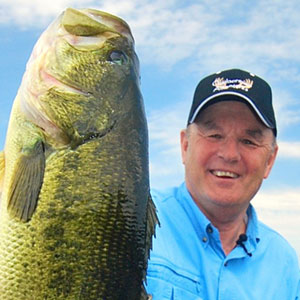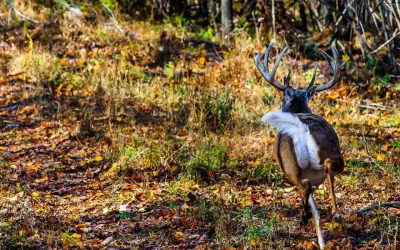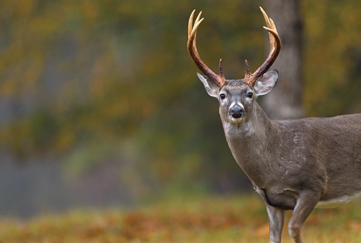 A great deal has been published about the whitetails’ sense of smell and how incredibly sensitive it is. There’s no doubt, that’s one serious snoot! Much has also been written about using products like Scent Killer to reduce odors on our person, clothes and other gear while hunting, but less has been told about “scent transfer” and the smells you may be leaving behind.
A great deal has been published about the whitetails’ sense of smell and how incredibly sensitive it is. There’s no doubt, that’s one serious snoot! Much has also been written about using products like Scent Killer to reduce odors on our person, clothes and other gear while hunting, but less has been told about “scent transfer” and the smells you may be leaving behind.
These transmitted smells have the potential of educating whitetails to your presence whether you’re hunting or back at home after the hunt. If they detect the intrusion they may avoid the area all together, blowing any chance you may have had. A mature buck doesn’t need to come in direct contact with you to learn they’re being pursued; they only need to sense the intrusion. Use these tips to avoid scent transfer.
1. These boots are made for hunting
When approaching your hunting site try to avoid walking on the same trails that whitetails might also use. Use rubber-bottomed boots and keep them clean. Rubber doesn’t absorb odors like other materials. Only use the boots for hunting and don’t put them on until you get to your hunting property.
2. Don’t touch me
Whenever you touch an object, whether it’s stopping to rest against a tree, a piece of brush slapping your forehead, or grass rubbing your pant legs as you walk to your stand, it’s like you’re “pushing” your scent into that object. A whitetail WILL smell it. It depends upon time, temperature, humidity and a few other factors on how strong the smell will be and how long it will remain there, but why let them know you’re coming? The best advice is to minimize your contact with trees and brush on your approach, especially during early season when all the green foliage is still on the trees. Prune an approach so that the only thing that will touch anything is the rubber bottoms of your boots.
3. Spray attention
Mature bucks will often put up with a certain amount on “indirect” human scent. The same Scent Killer System that protects you when you’re hunting will also protect against scent transfer. Shower, wash your clothing and treat it with Scent Killer Spray. This system reduces odors to trace levels that even mature bucks will tolerate in close proximity.
4. You Are *Always* Hunting. 
When setting up a treestand or ground blind some hunters think that since they may not be hunting the spot for several weeks, they don’t have to be careful about scent transfer. If the buck you’re after shows up to the site minutes, hours or even several days after you’ve set up the ambush location and detects human scent, in all likelihood you’ll never see him in a few weeks when you return to hunt. Some serious hunters will even wear rubber gloves or “trapper’s gloves” when making a whitetail ambush set up to keep scent transfer to an absolute minimum. 






0 Comments